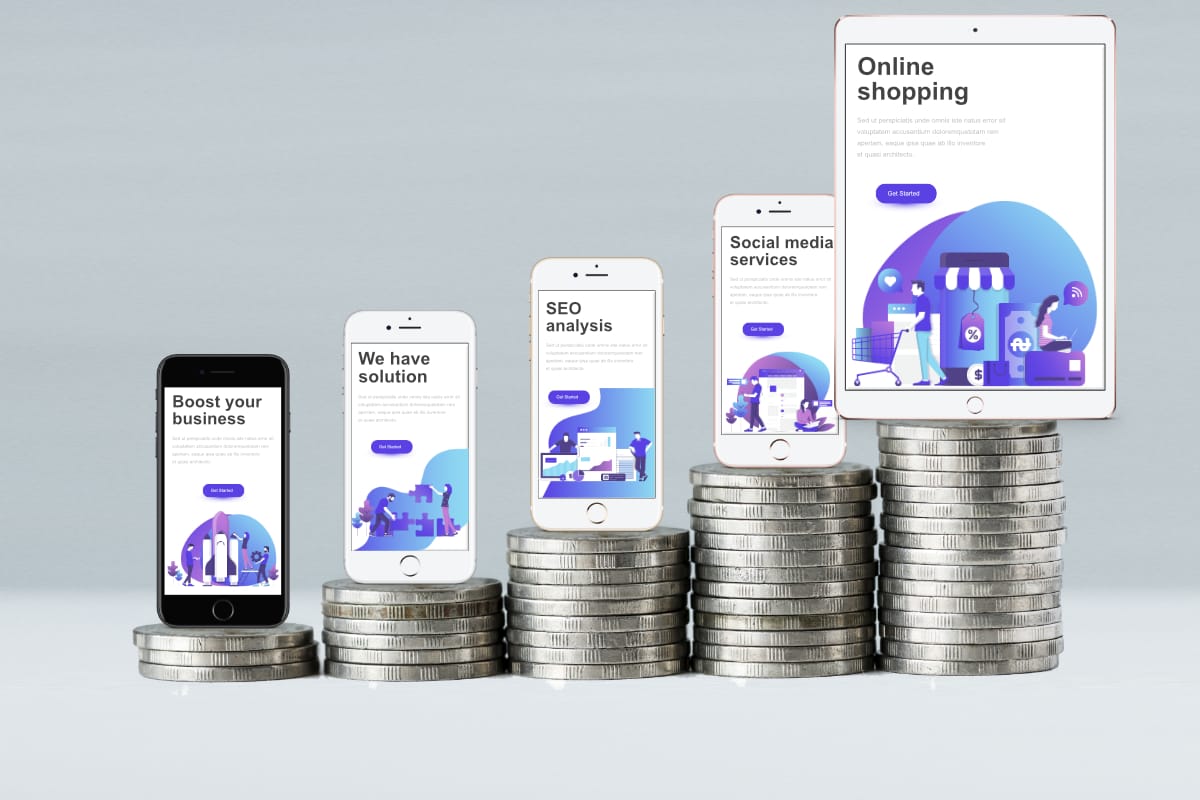Why Your Website is Your Most Important Marketing Asset
by Christina

Why Your Website Remains Your Most Valuable Marketing Asset
In today's dynamic digital landscape, it's easy to get swept up in the latest social media trends or emerging marketing technologies. However, one cornerstone of your online presence remains as crucial as ever: your website. Think of it as the digital heart of your brand - the central hub where potential customers converge to learn, engage, and ultimately, connect with your business.
While the ways we reach our audience have evolved, the fundamental importance of a well-crafted website as your primary marketing asset has only strengthened. Here's why:
1. Your Always-On Digital Storefront: Unlike physical stores with opening hours, your website operates 24/7, 365 days a year. This constant availability allows potential customers, regardless of their time zone or schedule, to explore your offerings and even make purchases at their convenience. It's your tireless salesperson, working around the clock.
2. A Comprehensive Information Hub: Your website serves as the definitive source of information about your business, your products or services, an your industry expertise. It's where you can tell your story, showcase your value proposition, and provide the in-depth details that empower potential customers to make informed decisions. From product specifications and pricing to case studies and testimonials, your website can house it all.
3. Your Lead Generation Powerhouse: A strategically designed website is a powerful tool for capturing valuable leads. Through contact forms, newsletter sign-ups, downloadable resources, and interactive content, you can gather essential contact information from interested prospects. This allows you to nurture these leads through targeted communication and guide them along the path to becoming loyal customers.
4. A Direct Sales Channel: For many businesses, their website functions as a direct sales channel. E-commerce capabilities allow you to sell products or services directly to your audience, expanding your reach beyond geographical limitations. Integrated payment gateways and secure checkout processes streamline the purchasing journey, enhancing customer convenience.
5. The Foundation for Customer Relationships: Your website isn't just about transactions; it's also about building lasting relationships. By providing valuable content through blog posts, articles, videos, and webinars, you establish yourself as a trusted authority in your field. Furthermore, integrating social media channels and showcasing customer reviews on your site fosters engagement and builds credibility.
6. Enhance Brand Control and Identity: Your website provides you with complete control over your brand narrative and visual identity. You can curate the exact message, tone, and aesthetic you want to convey, ensuring a consistent and impactful brand experience for every visitor. This level of control is often limited on third-party platforms.
7. Data-Driven Insights for Continuous Improvement: Modern websites equipped with analytics tools provide invaluable data on user behaviour, traffic sources, and conversion rates. This information allows you to understand what's working, identify areas for improvement, and refine your marketing strategies for optimal results.
Maximising Your Website's Effectiveness as a Marketing Asset in Today's Landscape:
To ensure your website remains a powerful marketing engine, consider these updated tips:
- Prioritise User Experience (UX) and User Interface (UI): Ensure your website is not only visually appealing but also intuitive, fast-loading, and easy to navigate across all devices (desktop, tablet, and mobile). A seamless user experience is crucial for engagement and conversions.
- Engage with High-Quality Multimedia: Leverage compelling visuals, including professional photography and engaging videos, to showcase your products, services, and brand personality. Multimedia content can significantly enhance user engagement and understanding.
- Craft Valuable and SEO-Optimised Content: Develop information, engaging, and keyword-rich content that addresses your target audience's needs and questions. This will not only attract organic traffic through search engines but also establish your expertise.
- Embrace Mobile-First Design: With the majority of internet users accessing the web via mobile devices, ensure your website is fully responsive and provides an optimal experience on smartphones and tablets.
- Integrate Social Media Strategically: Seamlessly integrate your social media channels with your website to encourage sharing, build community, and extend your reach.
- Implement Robust Lead Capture and Conversion Strategies: Optimise your website with clear calls-to-action, strategically placed forms, and compelling offers to capture leads and guide visitors through the sales funnel.
- Focus on Website Security and Trust: Ensure your website has an SSL certificate (HTTPS) and clearly communicates your privacy policies to build trust and reassure visitors.
- Continuously Analyse and Optimise: Regularly monitor your website analytics to understand user behaviour, identify areas for improvement, and implement data-driven optimisations to enhance performance and achieve your marketing goals.
In Conclusion, while the marketing landscape continues to evolve, your website remains the bedrock of your online presence and a vital tool for achieving your business objectives. By treating it as the central hub of your marketing efforts and continuously investing in its improvement, you can ensure it remains your most valuable marketing asset for years to come.
Related Content
Why you need to Invest in Content Marketing
Three quarters of buyers now conduct online research before they purchase....
The Best Ways To Market An Online Business
Marketing an online business can be a challenge, but it's essential for success....



